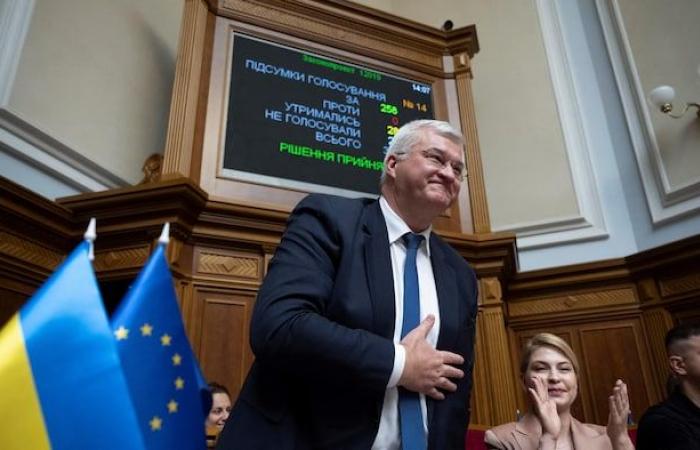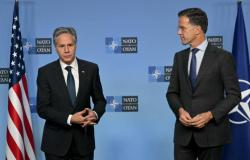The Ukrainian Foreign Minister on Thursday called on the West to authorize his country to strike Russian territory with long-range missiles, in response to the sending of North Korean soldiers to Russia ready to fight in Ukraine.
Andriï Sybiga, who spoke at a peace conference in Montreal, considered that the deployment of North Korean troops on the border with Ukraine constituted a real climbing
in the war.
We need a strong reaction
he pleaded. We need a strong decision from our allies to lift all restrictions on the use of long-range missiles against Russian territory.
This is our right to self-defense and we are talking about military targets on Russian territory
he added.
Ukrainian President Volodymyr Zelensky continues to ask his Western allies to authorize his forces to strike deep inside Russia with long-range missiles.
Several countries, including the United States, refuse to give such a green light, for fear of an escalation with Moscow.
Open in full screen mode
Andriï Sybiga, 49, is the Minister of Foreign Affairs of Ukraine. He was notably ambassador to Türkiye from 2016 to 2021. (Archive photo)
Photo : Getty Images / AFP/Andriy Nesterenko
Missiles supplied by Pyongyang
Citing U.S. intelligence, Secretary of State Antony Blinken said Thursday that of the 10,000 North Korean troops Washington says have entered Russia, up to 8,000 were deployed in the Kursk region
on the border with Ukraine.
We have not yet seen these troops deploy into combat against Ukrainian forces, but we expect this to happen in the coming days
he added during a joint press conference with US Defense Minister Lloyd Austin and their South Korean counterparts.
South Korean Defense Minister Kim Yong-hyun also claimed that Pyongyang had provided more than 1000 missiles
to Russia.
In Montreal, the Ukrainians received the support of the Norwegian Minister of Foreign Affairs, Espen Barth Eide.
Ils want to use these weapons against military targets, military targets that serve Russia in its attack on Ukraine. This should be the only restriction
he argued, emphasizing that Canada and several European countries shared this point of view.






